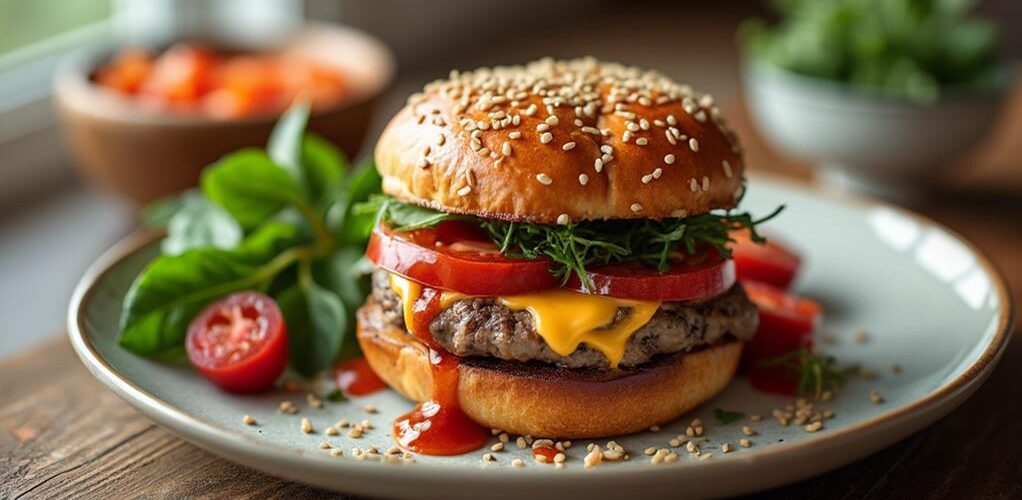
To achieve success on a ketogenic diet, it is essential to avoid refined carbohydrates such as white bread and pasta, sugars and sweeteners like honey, and starchy vegetables such as potatoes. Additionally, limit high-carb alcoholic beverages, sugary sodas, and packaged foods as they can all disrupt ketosis. Certain high-sugar fruits like bananas and grapes should also be excluded, as well as low-fat and processed foods which often contain hidden sugars. By meticulously selecting appropriate foods, maintaining ketosis becomes attainable, facilitating effective weight loss and metabolic health. For more detailed food recommendations and substitutions, continue exploring the provided insights.
Key Takeaways
- Avoid refined carbohydrates like white bread and pasta due to high carb content disrupting ketosis.
- Steer clear of sugars and sweeteners, including natural ones like honey, to prevent blood sugar spikes.
- Limit starchy vegetables such as potatoes and peas, which are high in carbohydrates.
- Refrain from consuming sugary sodas and packaged foods with hidden sugars that hinder ketosis.
- Avoid high-carb fruits like bananas and grapes that can exceed daily carbohydrate limits.
Refined Carbohydrates
Refined carbohydrates are a significant concern for individuals adhering to a ketogenic diet. Consumption of refined carbohydrates, such as white bread, cooked white pasta, and white rice, can disrupt ketosis due to their high carbohydrate content.
For instance, white sandwich bread contains approximately 13 grams of carbohydrates per slice, while cooked pasta yields around 33 grams of carbohydrates per cup. These high carb foods can lead to blood sugar spikes, which may hinder the body's ability to maintain ketosis and its associated fat-burning processes.
Starchy vegetables like potatoes and sweet potatoes should also be avoided as they are rich in carbohydrates.
Successful adherence to a ketogenic diet necessitates meticulous carb counting and the avoidance of refined carbohydrates. Keto alternatives, such as mashed cauliflower and low-carb bread made from eggs or nuts, provide suitable substitutes that align with the diet's low-carb requirements.
Reading ingredient labels diligently is essential, as many processed foods contain hidden refined carbohydrates that can quickly exceed daily carb limits.
Transitioning away from refined carbohydrates is vital for achieving and sustaining the desired low-carb intake. This shift not only supports ketosis but also facilitates better blood sugar control, making it a fundamental aspect of ketogenic dietary planning.
Alcoholic Beverages
Alcoholic Beverages
Alcoholic beverages pose a unique challenge for individuals adhering to a ketogenic diet due to their variable carbohydrate content. Beers and mixed drinks often contain high levels of carbohydrates, which can considerably disrupt ketosis. For instance, a standard piña colada can contain up to 32 grams of net carbs per serving, making it unsuitable for those following a keto regimen.
In addition, consuming alcohol could potentially lead to harmful blood sugar spikes, especially if combined with diabetes medications.
In contrast, hard liquors such as vodka, whiskey, and tequila generally contain 0 grams of carbohydrates and can be more compatible with a ketogenic diet. However, it is vital to consume these spirits without sugary mixers to maintain ketosis.
Low carb cocktails, which use sugar-free mixers, can be a viable alternative, but caution is advised to avoid hidden sugars that can lead to blood sugar spikes and potentially kick one out of ketosis.
Furthermore, alcohol moderation is essential. Excessive alcohol consumption can hinder weight loss and negatively impact overall health, even if the beverages consumed are low in carbohydrates.
Hence, while some low-carb alcoholic options exist, they should be enjoyed in moderation to guarantee successful adherence to a ketogenic diet.
Sugars and Sweeteners
Sugars and sweeteners represent a significant challenge for individuals on a ketogenic diet due to their high carbohydrate content. Natural sweeteners like honey and maple syrup are particularly problematic, with honey containing approximately 17 grams of carbohydrates per tablespoon. This high carb load makes them unsuitable for maintaining ketosis.
Similarly, many commonly-used condiments such as ketchup and barbecue sauce are laden with hidden sugars. For instance, a standard 9-gram packet of ketchup contains about 3 grams of carbohydrates, which can accumulate quickly and disrupt ketosis. Instead, consider using keto-friendly options like allulose or monk fruit, which have minimal impact on blood sugar levels.
Fruit juices pose another significant risk. Despite being derived from fruits, they are high in natural sugars and lack the fiber that could mitigate blood sugar spikes, thereby exceeding daily carbohydrate limits. Dried fruits, such as Medjool dates, are also highly concentrated sources of sugar; a single date contains around 18 grams of carbohydrates, making them unsuitable for a ketogenic diet.
To navigate these challenges, keto-friendly sugar substitutes like stevia or erythritol are recommended. These alternatives provide sweetness without the carbohydrate burden of traditional sugars, thereby supporting the maintenance of ketosis while allowing for some degree of sweetness in the diet.
Starchy Vegetables
While sugars and sweeteners are clear pitfalls for those adhering to a ketogenic diet, starchy vegetables also represent a significant challenge due to their high carbohydrate content. Starchy vegetables like potatoes, sweet potatoes, corn, and peas contain carbohydrate levels that can disrupt ketosis.
For example, a medium potato can contain over 30 grams of carbs, while a sweet potato has approximately 20 grams of carbs, making them unsuitable for low-carb eating. Peas, with about 12 grams of net carbs per cup, can quickly cause one to exceed the daily carbohydrate limit essential for maintaining ketosis.
Additionally, incorporating non-starchy vegetables like spinach, kale, and broccoli can provide essential vitamins and fiber without disrupting low-carb goals.
Additionally, vegetables such as corn, artichokes, parsnips, and cassava are high in carbohydrates and should be eliminated from a ketogenic diet.
To adhere to keto principles, it is advisable to replace these starchy vegetables with non-starchy alternatives. Leafy greens, broccoli, and cauliflower are excellent substitutes, providing essential nutrients without the high carb content.
Incorporating these potato alternatives into low carb recipes can help maintain ketosis while ensuring a nutrient-rich diet. By choosing non-starchy vegetables, individuals can better manage their carbohydrate intake and achieve greater success on a ketogenic diet.
Sugary Sodas and Packaged Foods
Managing carbohydrate intake is pivotal for those adhering to a ketogenic diet, and sugary sodas and packaged foods are among the primary culprits that can derail ketosis. A 12-ounce Coca-Cola, for instance, contains approximately 39 grams of carbohydrates, which can quickly surpass the daily carb limit set for a ketogenic regimen. This high carbohydrate content underscores the importance of avoiding sugary beverages, as even one can greatly disrupt ketosis.
Additionally, sugary sodas contribute to increased carbohydrate consumption, which can hinder ketosis maintenance and negatively affect overall metabolic health.
Packaged foods often contain hidden sugars and carbohydrates, necessitating meticulous scrutiny of ingredient labels to avoid unexpected carb intake. These hidden sugars contribute to increased carbohydrate consumption, which can hinder the maintenance of ketosis. As a result, it is critical to choose keto-friendly options and minimize reliance on pre-packaged products.
Beverage alternatives such as water, unsweetened tea, or coffee are advisable for those on a ketogenic diet. While sugar-free sodas may be consumed in moderation, they can still induce cravings for sweet foods, potentially undermining adherence to the diet.
Certain Fruits
For individuals adhering to a ketogenic diet, certain fruits pose a significant challenge due to their high sugar and carbohydrate content. Bananas, for instance, contain approximately 27 grams of carbohydrates each, while a cup of grapes has around 26 grams. Such high-carb content can easily disrupt ketosis, the metabolic state essential for the efficacy of the ketogenic diet.
Similarly, apples, with around 25 grams of carbohydrates per medium-sized fruit, are unsuitable for regular consumption on keto. It's vital to regularly track carbohydrate intake to avoid inadvertently exceeding daily limits, as hidden carbs can often be found in unexpected places.
Dried fruits, such as Medjool dates, present an even greater challenge due to their concentrated sugar levels. A single Medjool date contains about 18 grams of carbohydrates, making them a poor choice for those seeking to maintain ketosis.
Other high-carb fruits like mangoes and cherries, which can exceed 20 grams of carbohydrates per serving, should also be limited.
Conversely, low carb fruits such as strawberries and raspberries can be consumed in moderation. These fruit alternatives offer a more manageable carbohydrate load but still require portion control to stay within the daily carb limit of 20-50 grams necessary for a ketogenic diet.
Prioritizing these low carb options enhances the likelihood of dietary success.
Low-Fat and Processed Foods
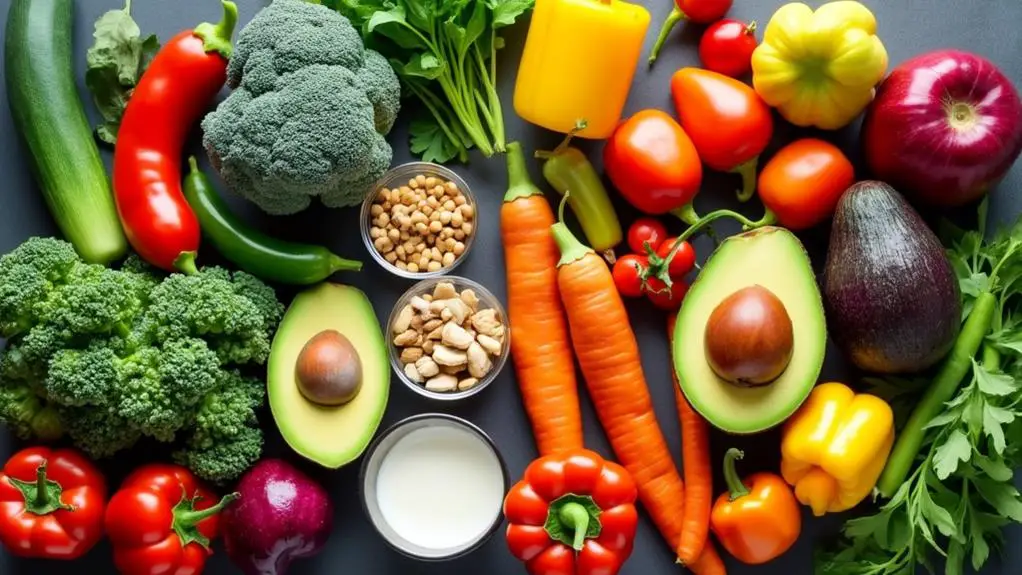
In addition to certain fruits, low-fat and processed foods present significant obstacles for individuals following a ketogenic diet. Low-fat foods often compensate for their reduced fat content by incorporating added sugars, which increases the carbohydrate count and can disrupt the metabolic state of ketosis. This phenomenon is particularly evident in products like reduced-fat salad dressings and snacks, which can contain 6-10 grams of carbohydrates per serving due to sugar additives.
Processed foods, including those labeled as low-fat, frequently contain hidden sugars and high carbohydrate levels, making them unsuitable for a ketogenic diet. The deceptive marketing employed in promoting these products often misleads consumers into believing they are making healthier choices, when in reality, they may be sabotaging their ketogenic efforts.
Additionally, achieving ketosis requires strict carbohydrate limits, and consuming such processed foods can prevent reaching or maintaining this state. To mitigate these risks, it is imperative to read nutrition labels meticulously. Identifying and avoiding products with unexpected carb content is vital for maintaining ketosis.
Instead, individuals should opt for whole, unprocessed foods such as full-fat dairy, nuts, and avocados, which provide beneficial fats without hidden sugars. These alternatives support the ketogenic diet's goals by offering essential nutrients while keeping carbohydrate intake minimal.
Frequently Asked Questions
What Foods Should I Avoid on a Keto Diet?
To optimize keto meal prep, avoid high-carb fruits, starchy vegetables, grains, sugary foods, and legumes. Effective carb counting tips include tracking net carbs and reading nutritional labels to maintain ketosis and guarantee dietary adherence.
What Is Forbidden in the Keto Diet?
In addressing the question of what is forbidden in the keto diet, it is essential to dispel keto misconceptions and highlight common mistakes. High-carb fruits, starchy vegetables, grains, sugary foods, and legumes should be strictly avoided.
What Foods Kick You From Ketosis?
High-carb fruits, starchy vegetables, refined carbohydrates, sugary foods, and certain alcoholic beverages can kick you from ketosis, exacerbating keto flu and carb cravings. Maintaining low-carb intake is essential to avoid disrupting the metabolic state of ketosis.
What Foods Are Surprisingly Not Keto?
Surprisingly, common fruits like bananas, grapes, and apples, as well as starchy vegetables such as potatoes and sweet potatoes, contain hidden carbs that contribute to keto misconceptions. These foods can impede ketosis due to their high carbohydrate content.
Conclusion
In conclusion, adherence to the ketogenic diet necessitates the exclusion of refined carbohydrates, alcoholic beverages, sugars and sweeteners, starchy vegetables, sugary sodas, packaged foods, certain fruits, and low-fat processed foods. This dietary regimen aims to induce ketosis by minimizing carbohydrate intake and emphasizing high-fat consumption. The elimination of these food groups is critical for achieving the metabolic state that underpins the purported health benefits of the ketogenic diet, thereby promoting its overall effectiveness and success.

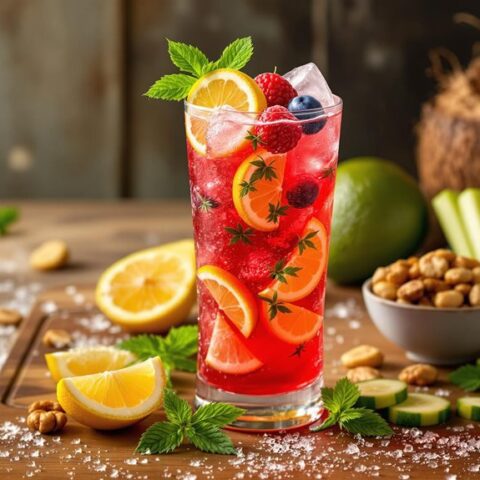

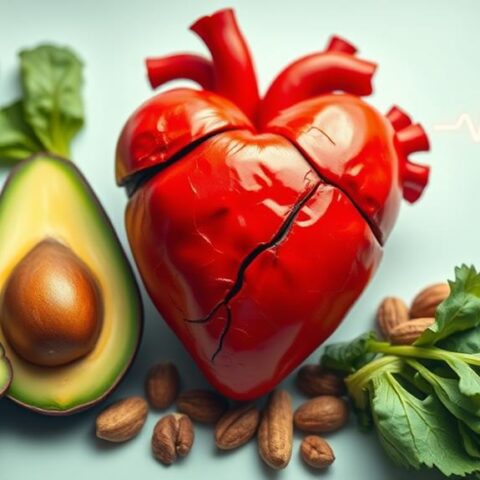

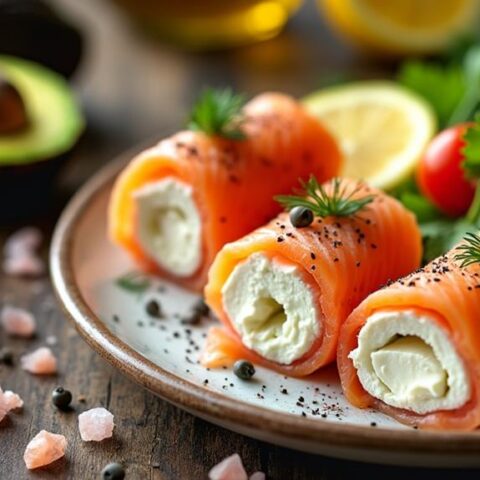




No Comments